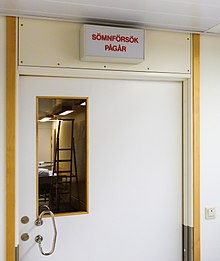Sleep study
Utility: – Sleep studies can diagnose or rule out sleep-related breathing disorders like sleep apnea. – They can identify sleep-related seizure disorders and movement disorders […]
Utility:
– Sleep studies can diagnose or rule out sleep-related breathing disorders like sleep apnea.
– They can identify sleep-related seizure disorders and movement disorders like periodic limb movement disorder.
– Sleep studies help diagnose problems like restless legs syndrome (RLS) and insomnia.
– They can pinpoint disorders causing extreme daytime tiredness such as narcolepsy.
– Sleep studies can also identify nighttime behavioral issues like sleepwalking or bruxism.
Types:
Polysomnogram:
– Records brain activity, eye movement, oxygen levels, heart rate, breathing patterns, and more.
– Typically conducted at night in a hospital or sleep center.
– Offers insights into various sleep issues.
Multiple sleep latency test (MSLT):
– Measures how quickly a person falls asleep during several nap opportunities.
– Helps diagnose conditions like narcolepsy.
– Often performed after an overnight study.
Maintenance of wakefulness test (MWT):
– Determines a person’s ability to stay awake during normal waking hours.
– Conducted over multiple nap periods in a sleep diagnostic center.
– Useful for assessing excessive daytime sleepiness.
Home sleep test (HST):
– Involves using a portable monitor to measure oxygen levels, heart rate, airflow, and more.
– Provides data on sleep-related parameters in a home setting.
Sleep questionnaires:
– Includes tools like Tayside children’s sleep questionnaire and Children’s Sleep Habits Questionnaire.
– Used to assess sleep disorders in children and adolescents.
– Helps evaluate daytime sleepiness.
Sleep study in psychology:
– Essential for empirical research in sleep psychology.
– Evaluates physiological, behavioral factors of sleep disorders.
– Studies brain-wave activity, circadian rhythms, and neuroscience related to sleep.
Administers of sleep studies:
– Sleep Specialists, board-certified in sleep medicine, can diagnose sleep disorders.
– Primary care physicians can order sleep studies.
– Neurologists treat brain and nerve-related disorders.
– Psychiatrists specialize in mental illness.
– Pulmonologists focus on lung and breathing disorders.
A sleep study is a test that records the activity of the body during sleep. There are five main types of sleep studies that use different methods to test for different sleep characteristics and disorders. These include simple sleep studies, polysomnography, multiple sleep latency tests (MSLTs), maintenance of wakefulness tests (MWTs), and home sleep tests (HSTs). In medicine, sleep studies have been useful in identifying and ruling out various sleep disorders. Sleep studies have also been valuable to psychology, in which they have provided insight into brain activity and the other physiological factors of both sleep disorders and normal sleep. This has allowed further research to be done on the relationship between sleep and behavioral and psychological factors.
